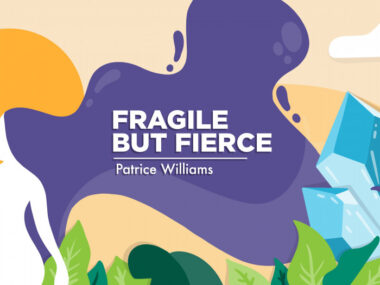Panel Supports Filsuvez Gel Approval in Europe for DEB, JEB
Written by |

The Committee for Medicinal Products for Human Use (CHMP) has issued a positive opinion that recommends the approval in Europe of Filsuvez (Oleogel-S10), a topical gel to treat skin wounds in people with dystrophic epidermolysis bullosa (DEB) or junctional epidermolysis bullosa (JEB), ages 6 months and older.
Based on the recommendation by CHMP — an arm of the European Medicines Agency (EMA) — a ruling on the application to approve Filsuvez, by Amryt Pharma, is expected within the next two months. The European Commission, which makes final decisions on therapy approval, usually accepts CHMP’s opinions.
The approval would make the therapy available to all member states of the European Union, as well as Iceland, Liechtenstein, and Norway. In the U.K., an authorization by the Medicines and Health care products Regulatory Agency (MHRA) is expected within the same time period.
“The CHMP recommendation for approval of Filsuvez in Europe is the most significant milestone in Amryt’s history and represents a major positive development for European patients that suffer from this debilitating condition,” Joe Wiley, MD, CEO of Amryt, said in a press release. “This is the culmination of years of hard work from all the Amryt team.”
“I’d like to formally thank both them and all the patients, caregivers and physicians for their commitment and efforts in getting us to this point,” Wiley added. “We are very excited to begin delivering Filsuvez to European patients in need as soon as possible.”
The positive opinion comes after two delays in the European review process: the need for Amryt to address a list of outstanding EMA questions and the agency’s call to seek the opinions of patients and independent EB experts before issuing a recommendation.
The U.S. Food and Drug Administration (FDA) recently rejected an approval application for Filsuvez, stating that the company’s application could not be approved in its present form, citing the need for more evidence of the therapy’s effectiveness in EB.
Filsuvez is a gel that contains an extract from birch tree bark with an active ingredient called betulin. Studies suggest that betulin, applied to the skin, can promote wound healing by suppressing inflammation and facilitating the migration of keratinocytes — the most common cell type of the skin’s outer layer.
Initially developed by Birken AG, which Amryt later purchased, the gel was approved in Europe under the brand name Episalvan for treating partial-thickness wounds due to skin grafts or burns.
Occurring in people with EB — a group of conditions that make the skin extremely fragile and prone to blistering — partial-thickness wounds are characterized by the skin missing its top layers.
The current applications are based mainly on top-line data from the worldwide Phase 3 EASE trial (NCT03068780), which assessed Filsuvez’s effectiveness and safety against a placebo gel in 156 children and 67 adults with either JEB, DEB, or Kindler syndrome, a very rare form of EB.
All participants had an EB-related wound between 10 and 50 square centimeters (about 1.5 to 8 square inches) for more than three weeks, but less than nine months. Over three months, participants were assigned randomly to treat their wounds with Filsuvez or a placebo gel.
Meeting EASE’s primary goal, top-line data demonstrated a significantly larger proportion of patients treated with Filsuvez had wound closure within 45 days than those given the placebo gel (41.3% vs. 28.9%).
Notably, this treatment effect was found only in recessive DEB patients who showed 72% higher chances of wound closure within 45 days. Dominant DEB or JEB participants showed no significant improvement in wound closure compared to placebo gel. Of note, DEB is typically more severe than dominant DEB.
Although not statistically significant, Filsuvez-treated patients were more likely to exhibit wound closure within three months, faster than the placebo gel.
According to patient reports, Filsuvez was associated with less pain during dressing changes than the placebo gel, which was statistically significant on day 14, but showed a non-significant trend at three months.
The therapy was generally well-tolerated and safe, with the occurrence of adverse side effects similar to those reported in the placebo group. The most common adverse events included wound complications, wound infection, itching, fever, and low levels of red blood cells.
All patients who completed the three-month EASE trial entered an extension phase, in which they all are receiving Filsuvez for two years to evaluate long-term safety.
“Today’s news is welcome and is extremely important to the many patients and their families that battle this terrible disease on a daily basis and have significant unmet medical needs,” said Jimmy Fearon, CEO of Debra Ireland, an Irish charity that provides support to patients and families living with EB. “A big thanks to the Amryt team, this is good news for our underserved families,” he said.






